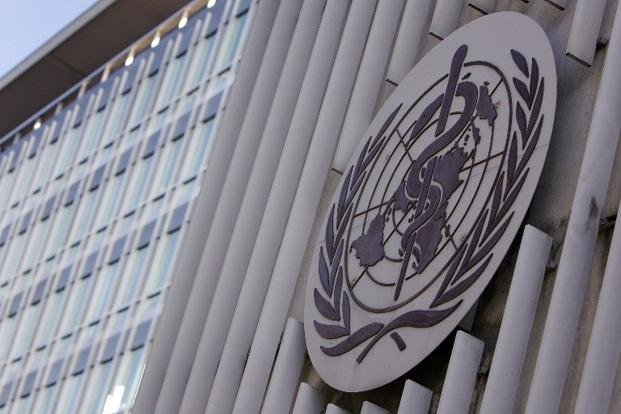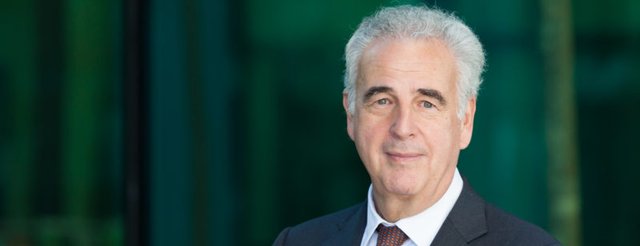Get CBD oil out of the legal twilight zone. Apparently, medicinal cannabis is more than a medical issue.

The use and production of medicinal cannabis oil (CBD oil) is legally barely regulated in my country. It ensures that producers and patients have to operate in a legal twilight zone. This only leads to abuses. I’m wondering why it takes so long to have a legal framework?
To clarify these abuses, I start with an example:
Louis Everaerts is a born and bred Antwerp citizen. He worked for twenty-two years at the docks. A time of hard labor that undeniably left traces on the body of the Antwerp citizen. Scoliosis, a permanent lateral curvature of the spine, and the shoulder-girdle syndrome, ruined his body. In 1996, he became an invalid.
In his youth, he had already blown a joint to relax. But during the gradual decay of his body, Louis experienced the beneficial effects of cannabis use. The crooked body kept her silhouette, but that damned pain became more bearable.
He was intrigued by the medicinal properties of the cannabis plant and began by growing cannabis. He built up years of experience with medicinal cannabis research and use. He did not want to keep that knowledge to himself, but to share it with others to help them.
He decided to start a Medical Cannabis Social Club (MCSC), in Antwerp. The MCSC was unfortunately short-lived, mainly because he had to operate in a dark gray judicial twilight zone. Three years ago, Louis changed his tactics. He started an internet shop, Hemp Drop, along which he sold CBD oil to his customers.
The shop worked in a legal way. Louis had a VAT number, he had the oil analyzed for sale by a laboratory, he sold his product with invoices and paid taxes on his turnover. Not a worry in sight, Louis thought, until the next raid ... This time one of the FASFC or Federal Agency for the Safety of the Food Chain. The pushy officials at the door demanded access to the house. They said "we are here to check the coffee and the tea".
The ex-docker and his wife did not understand what the ladies wanted at that moment, but given they had valid badges, they let them in. Apparently, on the formal application forms for Hemp Drop's application, Louis had replied to another bureaucratic questioning at the time, that he might trade in tea in the future. On the basis of a rather dubious occasion, the civil service forces itself into the house of Louis.
When searching the Hemp Drop office, on the first floor of the family house, they obviously did not find coffee or tea. However, the ladies of the FASFC allowed themselves to open the refrigerator containing a quantity of CBD extract. This CBD extract was enriched with olive oil and sold through his shop. After the invasion, they sealed the refrigerator, a few weeks later the police confiscated the extract and the attorney ordered Louis to close his online shop.
Five months later, the online store is likely to face a bankruptcy. Through the intervention he not only sees his business take a dive, but at the same time the man knows that hundreds of people will be without CBD oil, including Sofie Voncken, a nine-year-old epileptic patient.
Where the judicial avenues will lead Louis from here, is in the lap of the gods. Even more than the unfortunate adventure of Louis, this story contains a social question that concerns us all. How is it possible that the government cannot legally regulate the trading of CBD oil?
The national situation is somewhat a reflection of the international bureaucratic inability to put medicinal cannabis and CBD oil into a legal framework. The World Health Organization (WHO) is the leading example of why we apparently ended up in a fiasco.

In addition, each country naturally has the responsibility to provide its population with the highest possible physical and mental health standards. This is what the Universal Declaration of Human Rights says and the UN, the WHO is part of it, and the participating countries have approved it. Let me briefly zoom in on the communication about CBD by the WHO and its way of working.
85 years without evaluation!
I repeat it again. 85 years without evaluation ...
On the website of the WHO one reads, in a message from December 2017, that there is some evidence that CBD helps with epilepsy. But given the current state of affairs, the WHO does not recommend the medicinal use of CBD. This report is noticeably less enthusiastic than the report Cannabidiol (CBD) Pre-Review Report Agenda Item 5.2.5, the report of the meeting of the WHO expert committee on CBD that took place between 6 and 10 November of 2017. This meeting dates from at least three weeks before the aforementioned reporting on the website of the WHO, and can still be found on their website.
The November meeting report reads that CBD is well tolerated and safe in clinical trials. In addition, it appears to be an effective remedy for the treatment of epilepsy in various clinical trials. The same report knows that there are currently no authorized pure CBD products, but that different countries offer CBD products to the public without penalties. At the same time, and in stark contrast to the December report, according to this report CBD might have favorable therapeutic effects in 17 other medical indications (Alzheimer's, Parkinson's, MS, Huntington's, pain, psychosis, etc.).
Confusing? Yes, but only if you assume that the UN and the WHO have a smooth working mechanism and that there only work science-loyal civil servants. Unfortunately, this is not the nature of the UN. The following example will make clear to you that at the top of the UN, they prefer political ideologies over scientific findings.
As a result of the Expert Committee on Drug Dependence meeting in Geneva in November 2016, the World Health Organization received a report (Cannabis and Cannabis Resin Pre-Review Report) from a number of professors. In the foreword, Michel Kazatchkine, professor of medicine and a member of the Global Commission on Drug Policy and former executive director of the Global Fund for Combating HIV, Tuberculosis and Malaria, expresses:
In the eighty years since cannabis and cannabis resin were last reviewed by the Health Committee of the League of Nations in 1935, both the social context of cannabis use and the science of drug dependence have dramatically changed.

Later he continues with:
The current scheduling of cannabis is in marked divergence with the Convention’s principle that scheduling of substances should be based on a scientific assessment by WHO. In the absence of a recent assessment, the continued prohibition of cannabis appears completely illegitimate even though it may be legal.
In the report, a handful of professors reprimanded the WHO for not having evaluated cannabis and the phytocannabinoids for over 85 years. This is not only incredibly shocking, but the result is that the knowledge of the WHO concerning the medical applications of cannabis does not reflect current scientific findings. This is in violation of its own rules because they state that the findings, and the classification of the substances, of the WHO must be based on the most up-to-date scientific evidence. Is it not surprising that the international organization that we assume to be driven by the maintenance and improvement of public health at a global level deviates from its policy plan?
Instead of providing clear guidelines, the WHO causes chaos. This chaos causes a growing number of countries (Canada, Switzerland, Australia, New Zealand, ...) to distance themselves from CBD and medicinal cannabis.
Confusing? That is because medical cannabis is more than a medical issue!
Note: sources can be found within the text
I was using cbd, however I get a little psychotic from it :(
I researched medical cannabis for months before using CBD oil. There is no doubt that medical cannabis is more than a medical issue.
My experience with CBD oil has been 100% positive.
Thank you!
If cannabis legal in my country I will use it for organic pesticides.